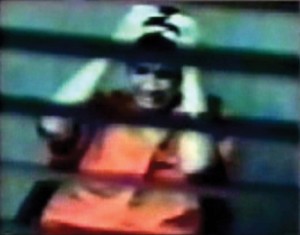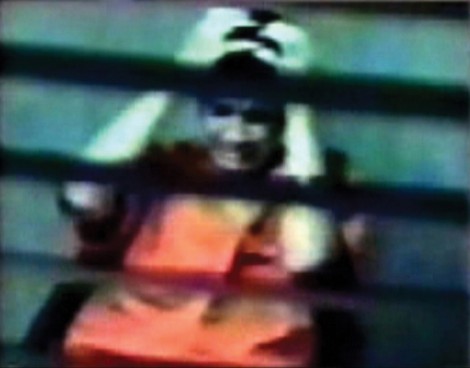‘YOU DON’T LIKE THE TRUTH’ REVIEW: Checking in to Guantanamo, not much checking out

You Don’t Like the Truth: 4 Days Inside Guantanamo is a searing portrait of a Canadian teenager and how he ended up inside the confines of arguably the world’s most infamous prison. Patching together surveillance footage and taped interviews with family, friends and experts, the documentary serves as an uncomfortable microscope on how the ravages of war can have lingering effects years after the bullets hit their mark and the hand grenades are thrown into the air. It’s a living, pulsating conversation piece, inviting debate and disagreement.
While growing up, Omar Khadr lived a back-and-forth life between Canada and Afghanistan. His father, according to the film, had militant ties and sent Omar at a young age to work with the Taliban. When American soldiers stumbled upon the child, he was reportedly assembling mines in an Al-Qaeda compound.
The rest of this story turns fuzzy.
In 2002, during a raid of the house where Khadr was staying, an American soldier was killed by a hand grenade. Omar, who sustained severe injuries during the battle, found himself charged with the murder of the American and eventually taken to Guantanamo, a detention center run by the United States on the island of Cuba.
You Don’t Like the Truth doesn’t take sides in the debate over whether Omar is guilty or innocent of war crimes. Directors Luc Côté and Patricio Henriquez appreciate the need for subtext when it comes to Omar’s story. And after watching Canadian intelligence officials interrogate the prisoner, it’s definitely made clear that the teenager’s case is not run of the mill. At its heart, the documentary asks a simple question: Should child soldiers be held to the same standards as their adult counterparts? Or, rather, should anyone be held to these conditions?
For audience members and the assembled talking heads, Omar’s case speaks to larger issues, such as the continued controversies over prisoner detainment in Guantanamo, the question of torture and the limitations of interrogation, and how military officials seemingly have the power to pick and choose who falls under certain justice parameters and who doesn’t.
Many of the voices speaking in defense of Omar never discuss what happened with the grenade in the Al-Qaeda compound. That’s probably the best tactic for them. No one will ever know what happened (even if there is a proper trial), except Omar. Instead, these men, most of them former prisoners of Guantanamo, harshly criticize the conditions of the detainment center and question the absence of such basic tenants as habeas corpus. Their arguments are damning and detailed, and with no counter-argument, they are left to linger uneasily in the air.
But no matter what anyone in the film says, nothing can compete with the intensity and interest level that comes from watching the Canadian intelligence officials interrogate Omar. Over the course of four days, the young man experiences a wide variety of emotions, everything from elation over seeing fellow citizens from Canada to frustration that he may never leave Guantanamo. He tells his story of that fateful day from every possible angle. Many times he contradicts himself and seems to dangle carrots in front of the interrogators (for example, he confesses some knowledge of Osama bin Laden). But throughout all of the tapes, which frequently feature audio excerpts that have been deleted for security reasons, it’s difficult to get away from the basic motive behind the documentary: He’s only a kid, a teenager whose eyes brighten when offered a burger from McDonald’s. He’s also a prisoner who is being interrogated with no legal counsel by his side.
At 99 minutes, You Don’t Like the Truth never feels too long, but at times it’s trying to take in the drama of the story. The surveillance footage is not exactly high-definition viewing. Audience members never see a clear close-up of Omar, and his interrogators are always hidden behind black dots to protect their identity. The audio is shoddy and subtitles are necessary. I also would have appreciated some elaboration on the fallen American soldier. As it stands, the directors only offer a few tidbits about his life and service. Discovering the identity of the person on the other end of the grenade could have humanized this story even more. No matter what one believes about Omar, a life was lost in that 2002 incident.
Still, this film represents the first time surveillance footage has been released from Guantanamo. To say it offers a rare cinematic experience for audiences, and in particular American audiences, is an understatement.
You Don’t Like the Truth: 4 Days in Guantanamo will not convince you that Omar is innocent or guilty of his alleged war crimes. What it’s more likely to do is make you look at uneasy visuals from a detainment center that deserves its infamy. The documentary is not about Omar; it’s about his home for the past nine years.
By John Soltes / Publisher / John@HollywoodSoapbox.com


